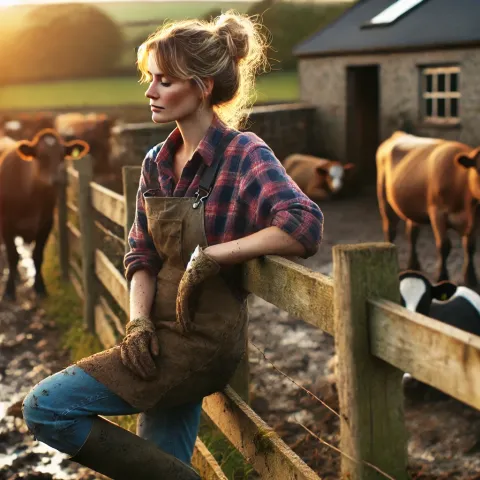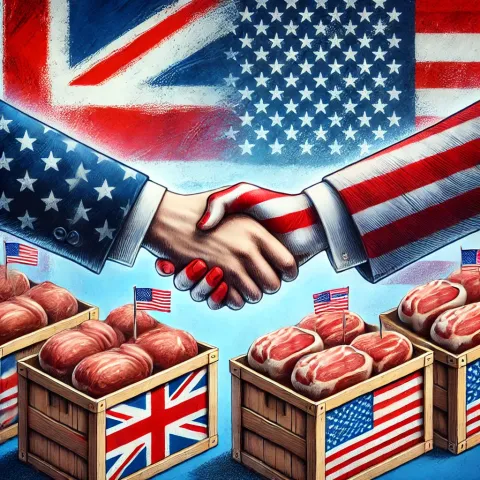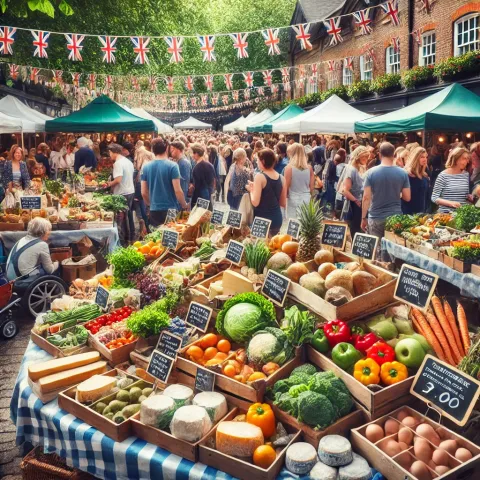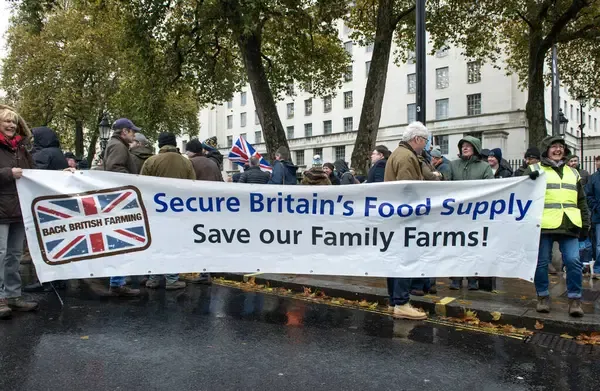British farmers at risk of losing it all
A rural Britain under siege. It’s easy to romanticise farming in Britain—the rolling fields, the centuries-old traditions, the sense of continuity that ties the past to the present.
But if you step closer, beyond the postcard-perfect views, you’ll find an industry at breaking point.
British farmers are no strangers to hard work, but today they’re battling forces far beyond their control.
Labour shortages, rising costs, and Brexit’s endless red tape have left many questioning how long they can hold on.
And now, talk of a trade deal with the United States threatens to push them even closer to the edge.

When farming becomes personal
Take Sarah, a cattle farmer in Devon.
I met her on a cold, misty morning as she prepared to feed her herd.
Her family has farmed this land for four generations, and she’s determined not to be the one who loses it.
“This place is in my blood,” she said, her voice steady but her eyes betraying a flicker of doubt.
For Sarah, the challenges feel relentless.
The labourers she relied on before Brexit are gone, replaced by longer days and sleepless nights.
Rising costs for feed and fuel have eaten into what little profit she made.
And now, there’s the threat of competition from American beef.
“How can we compete with their scale?” she asks. “They’ve got huge farms, massive resources.
I’ve got 40 cows and a mortgage.” Sarah’s frustration is palpable, but so is her pride. She knows her beef is among the best in the world, raised to the highest welfare standards.
“People say they care about quality,” she says. “But will they care enough to keep us in business?”

A deal with hidden costs
Trade talks between the UK and US aren’t new. Back in 2019, Donald Trump dangled the promise of a “phenomenal” deal—a soundbite that grabbed headlines but masked a host of unresolved issues.
Now, the focus has shifted. The current proposal would see high quality American beef entering the UK market tariff-free.
On the surface, this seems like a step forward—no chlorinated chicken, no hormone-fed beef.
But scratch beneath the surface, and the cracks begin to show. American farms operate on a scale that British farmers can’t match. It’s not just about size; it’s about cost.
While British farmers work to some of the world’s highest welfare standards, their American counterparts benefit from economies of scale that drive prices down.
For consumers, the prospect of cheaper meat is enticing. But at what cost? If British farms close, we don’t just lose local produce—we lose the traditions, sustainability, and sense of place that make British farming unique.
Brexit’s shadow still looms It’s hard to overstate the impact of Brexit on British agriculture. Seasonal workers, once the backbone of the industry, have all but disappeared. Exporting to the EU—a market many farmers relied on—has become a labyrinth of paperwork and delays.
Tom, a fruit grower in Kent, puts it bluntly: “We’re drowning in forms and costs. Last year, I had to let half my apples rot because there weren’t enough pickers. And the ones we did get to market? They were late, and we couldn’t sell them at full price.”
Tom’s story is one of many. British farmers are resilient, but resilience has its limits. How much more can they take?

What does this mean for shoppers?
It’s tempting to focus solely on farmers, but the truth is, this affects us all. If small farms disappear, so does the choice we take for granted.
Locally sourced, ethically produced meat could be replaced by imports that, while cheaper, lack the same connection to the land. There’s also the question of quality.
British farming has built its reputation on high standards. If those standards are lost in the race to compete on price, we all lose. At the same time, there’s potential for innovation.
Some farmers are pivoting to niche markets, producing organic or heritage products that command a premium.
But scaling up these efforts takes time, money, and support—things that are in short supply for many.
How we can make a difference
Protecting British farming requires more than words. It demands action—from policymakers, consumers, and communities alike.
1. Support innovation: Grants and subsidies for technology can help farmers work smarter, not harder.
2. Celebrate local food: A national campaign to promote British produce could help consumers understand its value.
3. Negotiate wisely: Trade deals must include safeguards to protect sensitive industries.
4. Buy local: Supporting local farmers isn’t just good for them— it’s good for all of us.
a future worth fighting for
Farming in Britain is more than an industry—it’s an identity. It’s the lifeblood of rural communities, the foundation of our food supply, and a link to traditions that stretch back centuries.
As negotiations with the US continue, we face a choice: Do we prioritise short-term gains or invest in a future where British farming can thrive? The answer matters—not just for Sarah, Tom, and the countless others working the land, but for all of us.
Because when we lose local farms, we lose something irreplaceable.



